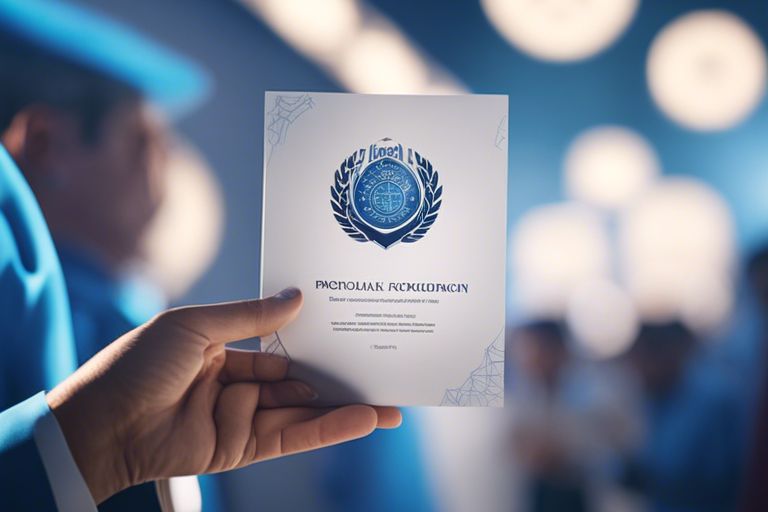Overseeing the intricate workings of the human body, the Doctorate of Physiological Sciences (PhD in Physiological Sciences) examines into advanced research and analysis of biological processes. This prestigious program equips scholars with the expertise to conduct groundbreaking research in areas such as cardiovascular physiology, neurophysiology, and exercise physiology. Aspiring candidates are immersed in a rigorous curriculum that prepares them to contribute significantly to the ever-evolving field of physiological sciences.

Key Takeaways:
- Research Focus: A Doctorate of Physiological Sciences encompasses a strong research component, allowing students to conduct in-depth research in areas such as human physiology, cellular biology, and systems physiology.
- Interdisciplinary Approach: This program integrates knowledge from various fields such as biology, chemistry, and medicine to provide a comprehensive understanding of physiological processes at the molecular, cellular, and systems levels.
- Career Opportunities: Graduates with a PhD in Physiological Sciences can pursue careers in academia, research institutions, pharmaceutical companies, government agencies, and healthcare organizations, working as research scientists, educators, consultants, and policymakers.

Overview of a PhD in Physiological Sciences
Definition and Scope of Physiological Sciences
One of the key aspects of a PhD in Physiological Sciences is understanding the intricate mechanisms of the human body at a cellular and molecular level. This field encompasses the study of how different systems in the body function and interact to maintain health and respond to diseases.
Importance and Relevance in Today’s World
To comprehend the significance of Physiological Sciences today, one must recognize its pivotal role in advancing healthcare, developing new treatments, and enhancing the overall quality of life. With the rise of chronic diseases and the need for personalized medicine, research in this field is crucial for improving patient outcomes and shaping the future of healthcare.
Sciences. Physiological Sciences, with its focus on understanding the underlying mechanisms of health and disease, provides a foundation for groundbreaking discoveries in medical research and healthcare. By unraveling the complexities of the human body on a cellular and molecular level, researchers in this field can develop innovative therapies, diagnostic tools, and preventive strategies to address a wide range of health conditions.
The Path to Earning a PhD in Physiological Sciences
Prerequisites and Admission Requirements
Requirements for pursuing a PhD in Physiological Sciences typically include a bachelor’s or master’s degree in a related field, such as biology or physiology. Additionally, a strong academic background, research experience, letters of recommendation, and satisfactory scores on the GRE exam are often required for admission.
Key Areas of Study and Research Focus
Admission to a PhD program in Physiological Sciences often depends on the alignment of the applicant’s research interests with those of the faculty members in the department. Common areas of study include cardiovascular physiology, neurophysiology, exercise physiology, and respiratory physiology.

Career Opportunities and Professional Development
Academic and Research Positions
Many graduates of a Doctorate of Physiological Sciences program go on to secure positions in academia and research institutions. These positions typically involve conducting cutting-edge research, publishing scholarly articles, and mentoring students. With a PhD in Physiological Sciences, individuals can work as professors, research scientists, or postdoctoral fellows in universities, colleges, and research organizations.
Roles in Healthcare and Industry
Many graduates with a Doctorate of Physiological Sciences also find fulfilling career opportunities in healthcare and industry. They can work in pharmaceutical companies, biotechnology firms, hospitals, and government agencies. In these roles, individuals may be involved in drug development, clinical trials, regulatory affairs, or medical writing. The diverse skill set acquired during a PhD program equips them to excel in various roles within healthcare and industry.
Development: As professionals in healthcare and industry, individuals with a PhD in Physiological Sciences can further their careers by staying updated on advancements in the field, networking with professionals, and pursuing certifications or additional training in specialized areas. Continuing education and professional development opportunities can help them advance to leadership positions and make significant contributions to their respective industries.
Summing up
With this in mind, obtaining a Doctorate of Physiological Sciences (PhD in Physiological Sciences) is a significant academic achievement that demonstrates a deep understanding of the human body and its functions. Graduates of this program are equipped with advanced knowledge and skills that can lead to a wealth of career opportunities in research, academia, or healthcare. Pursuing a PhD in Physiological Sciences opens doors to making groundbreaking discoveries and advancements in the field of human physiology.
FAQ
Q: What is a Doctorate of Physiological Sciences (PhD in Physiological Sciences)?
A: A Doctorate of Physiological Sciences, commonly known as a PhD in Physiological Sciences, is an advanced academic degree that focuses on the study of how living organisms function at the molecular, cellular, tissue, and organ system levels.
Q: What are the entry requirements for a Doctorate of Physiological Sciences program?
A: Entry requirements for a PhD in Physiological Sciences typically include a master’s degree in a related field, such as biology or physiology, strong letters of recommendation, a competitive GPA, satisfactory GRE scores, and a well-crafted personal statement outlining research interests and career goals.
Q: What career opportunities are available for graduates with a Doctorate of Physiological Sciences?
A: Graduates with a PhD in Physiological Sciences can pursue diverse career paths, including academia (research or teaching positions at universities), industry (biotechnology companies, pharmaceutical companies), government agencies (such as the NIH or FDA), consulting, science communication, and more. The advanced research and critical thinking skills acquired during the program make graduates highly sought after in various sectors.

